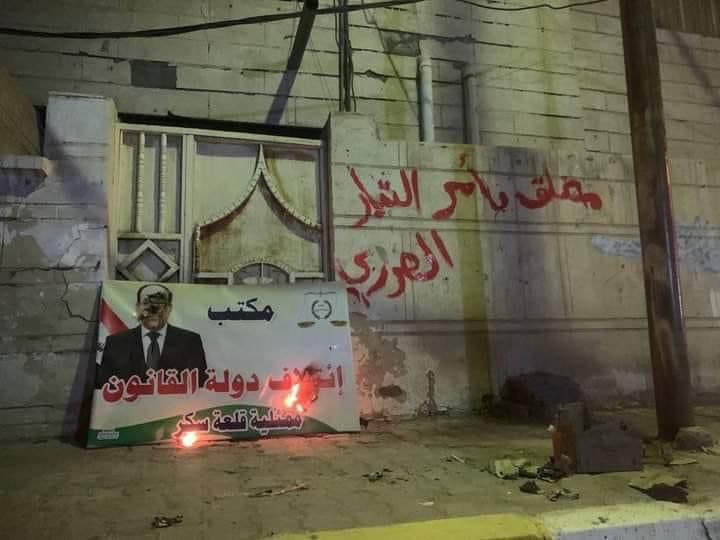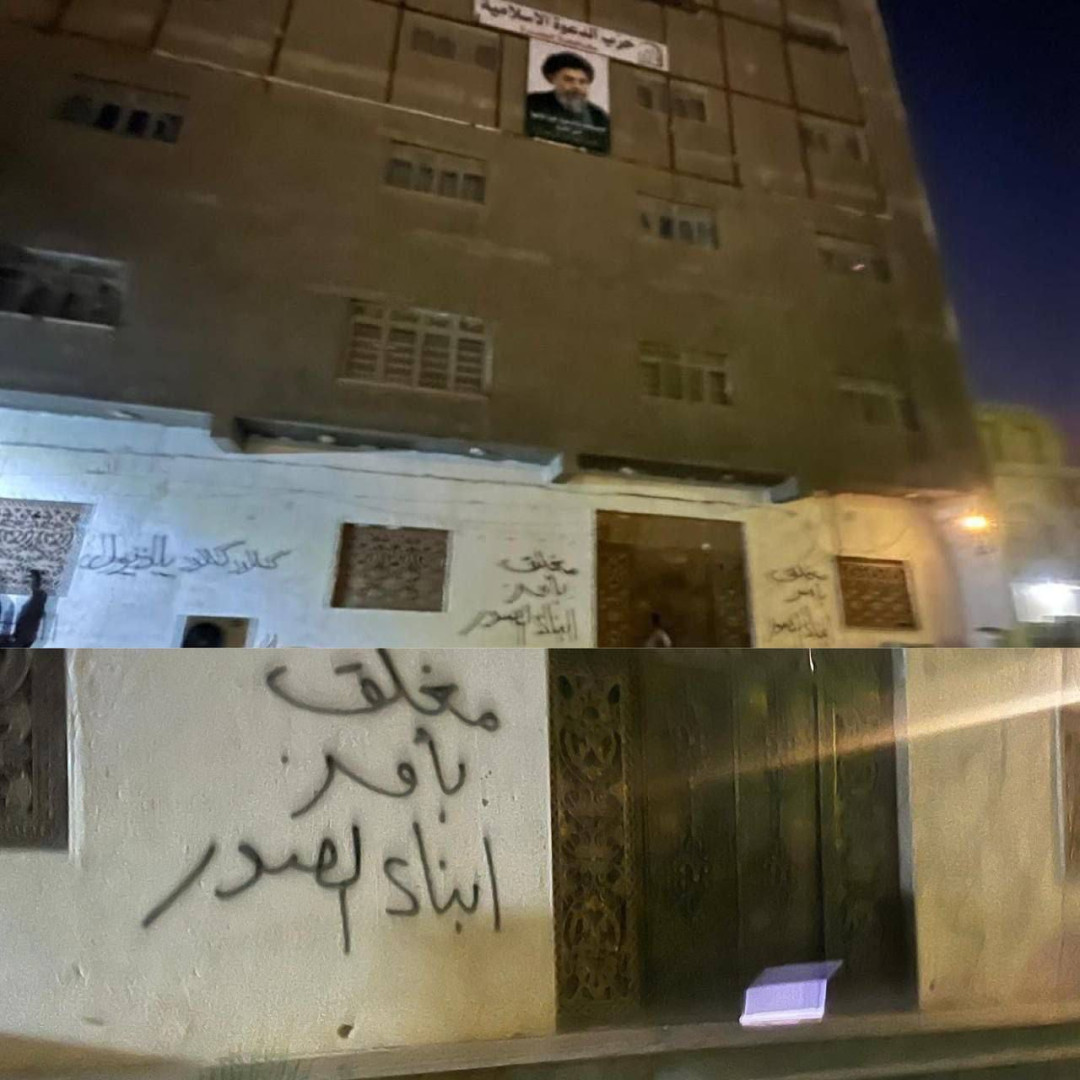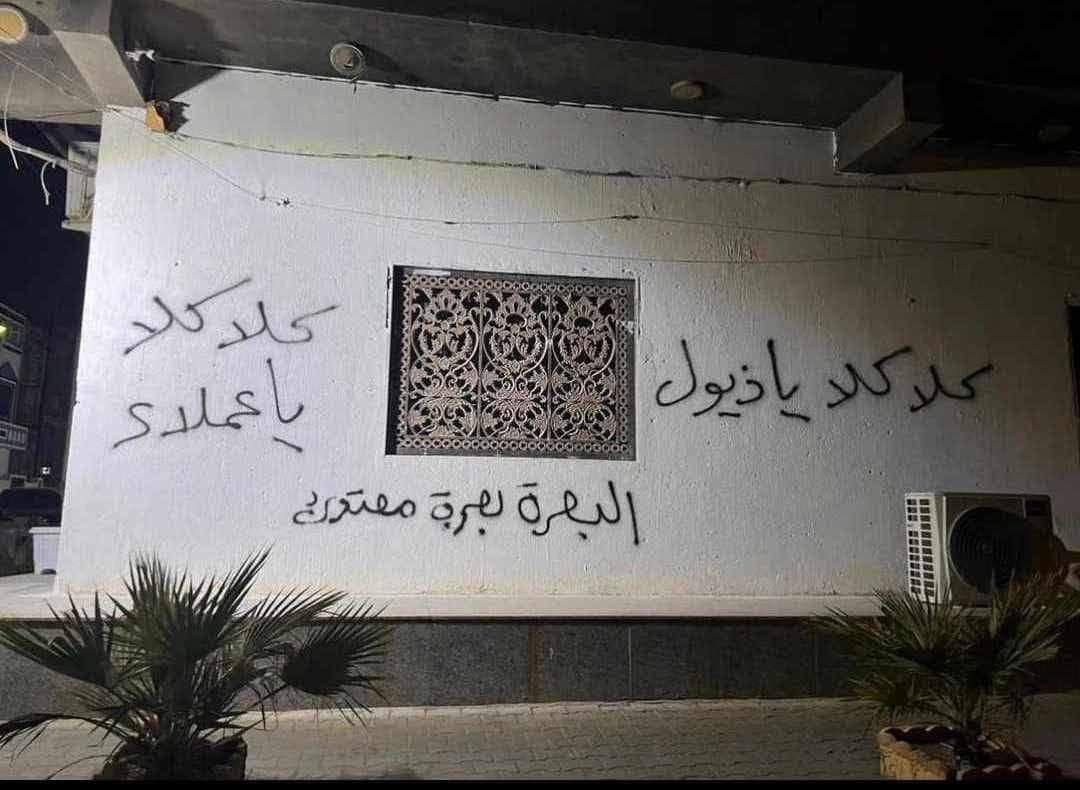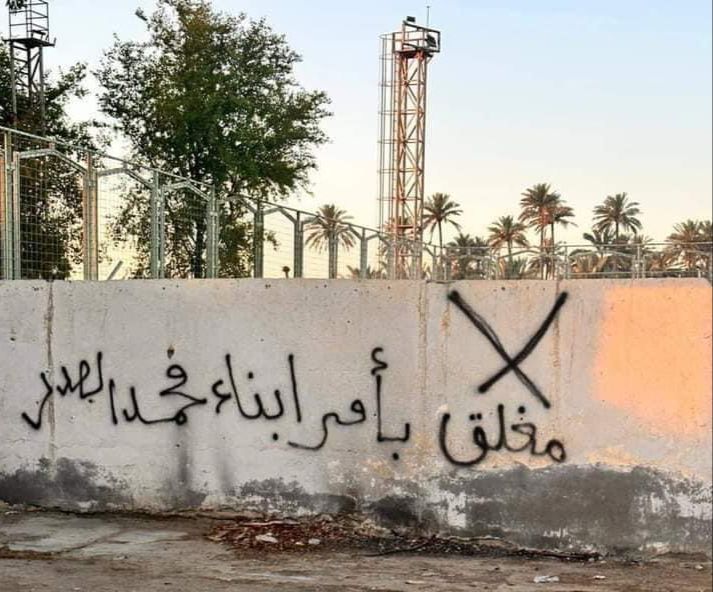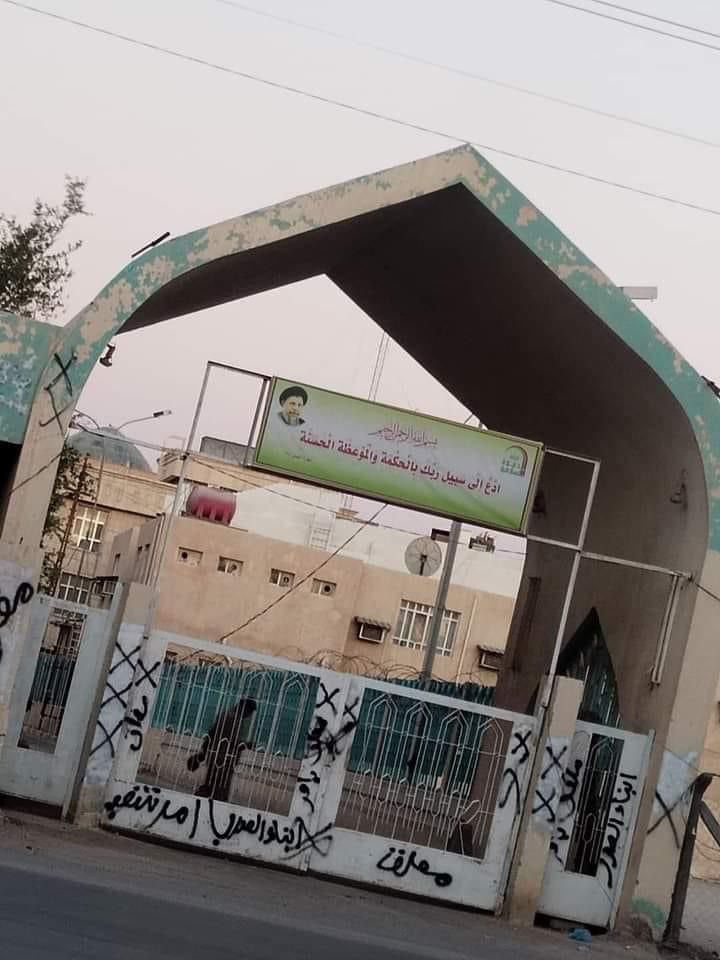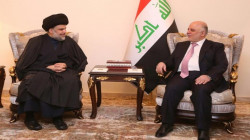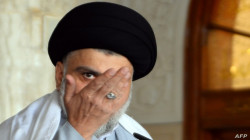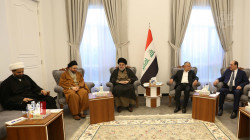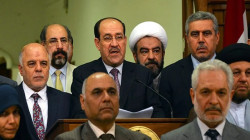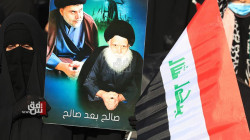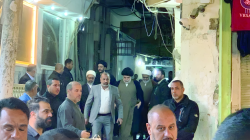Protests Break Out in Iraq as Sadrists Accuse Dawa Party of Defamation
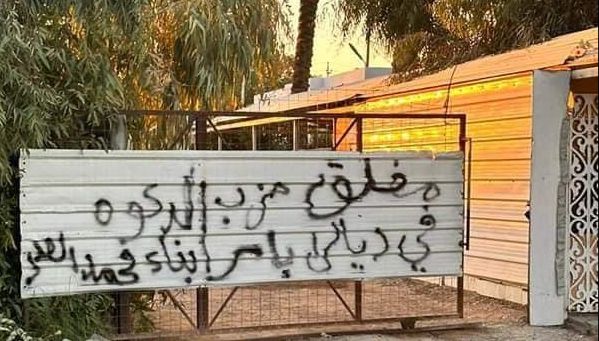
Shafaq News/ Followers of revered Shiite cleric, Mohammad Sadiq al-Sadr, have taken the streets in southern and central Iraqi cities to protest against what they labeled as the Islamic Dawa Party's attempt to tarnish the legacy of their late spiritual leader.
Starting from Saturday evening and continuing into early Sunday, protestors stormed several offices associated with the Dawa Party. In other instances, they inscribed graffitis with anti-Dawa sentiments on the exterior walls of the party's headquarters and defaced portraits of its leaders.
The fiery reaction of the Sadrists emerged after a prominent Sadrist figure, Hasan al-Azzari, shared a post on social media on Saturday. In it, he lambasted the Dawa Party, led by the Secretary-General and head of the State of Law Coalition, Nouri al-Maliki, for tarnishing the reputation and legacy of Ayatollah al-Sadr and insinuated an association with the regime of Saddam Hussein.
In response, the Dawa Party vehemently refuted al-Azzari's allegations in a subsequent statement, denying ties to any media platforms promoting such discourse.
Al-Sadr was virtually unknown beyond Iraq before the 2003 U.S.-led invasion. But he soon became a symbol of resistance to occupation, deriving much of his authority from his family.
Al-Sadr is the son of revered Grand Ayatollah Mohammed Sadeq al-Sadr, who was assassinated in 1999 after openly criticising then-dictator Saddam Hussein. His father's cousin, Mohammed Baqir, was also killed by Saddam, in 1980.
Al-Sadr was the first to form a Shiite militia that fought U.S. troops. He led two anti-U.S. revolts, prompting the Pentagon to call his Mehdi Army militia the biggest threat to Iraq's security.
In 2004, the U.S. occupation authority issued an arrest warrant for al-Sadr and said it would kill or capture him in connection with the 2003 murder of moderate Shi’ite leader Abdul Majid al-Khoei, who the Americans had brought into the holy Shiite city of Najaf during the invasion.
Sadr denied any role in Khoei's killing and was never charged.
Al-Sadr survived upheaval in the 19 years since his Mehdi Army took on the Americans with assault rifles and rocket-propelled grenades in alleys and streets of Baghdad and southern cities.
His followers also fought the Iraqi army, Islamic State militants and rival Shiite militias.
In Iraq's sectarian 2006-2008 civil war, the Mehdi Army was accused of forming death squads that kidnapped and killed Sunni Muslims. Sadr has disavowed violence against fellow Iraqis.
The long-running dispute between al-Sadr and al-Maliki was the main feature of the political impasse that paralyzed Iraq following the October 2021 election. The former blamed the latter for the endemic corruption and security failure during his two consecutive terms (2006-2014) as prime minister. Their enmity dates back to 2008, when al-Maliki launched the military campaign against al-Mahdi Army, the disbanded militia formerly led by al-Sadr.
